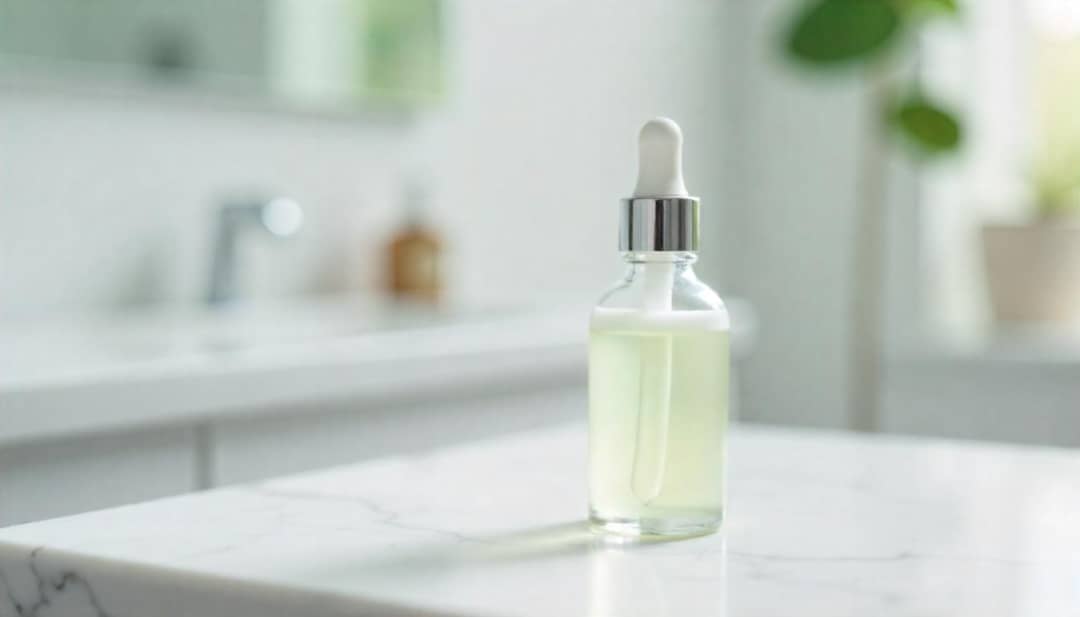If you’re looking for a natural, gentle alternative to retinol, you might want to consider rosehip oil. While retinol is often touted as the holy grail for anti-aging and skin rejuvenation, it can sometimes be too harsh for sensitive skin or individuals with conditions like rosacea. Enter rosehip oil: a natural powerhouse that delivers many of the same benefits of retinol, but without the irritation.
In this blog, we’ll dive into why rosehip oil serums are an excellent choice for anti-aging, skin renewal, and brightening, and how they can work as a nature-based alternative to the often-intense effects of retinol.
What Is Rosehip Oil?
Rosehip oil is cold-pressed from the seeds of wild rose bushes, primarily the Rosa canina species, which are typically found in South America. This precious oil is rich in essential fatty acids, vitamins A and C, and antioxidants. It is a known anti-inflammatory, hydrating, and brightening ingredient. Its unique composition makes it an ideal ingredient for improving the overall health and appearance of the skin.
What sets rosehip oil apart from many other oils is its high content of vitamin A (in the form of retinoic acid), which mimics the effects of retinol but in a gentler form.
The Benefits of Rosehip Oil Serums
1. Natural Retinol Alternative
Rosehip oil contains a form of vitamin A, also known as retinoic acid, which provides many of the same benefits as retinol, such as promoting cell turnover and improving skin texture. However, unlike retinol, rosehip oil is less likely to cause irritation or sensitivity, making it perfect for those with more sensitive skin. This natural retinol alternative can help smooth fine lines, improve skin tone, and reduce the appearance of wrinkles.
2. Promotes Skin Renewal and Regeneration
Rosehip oil is known for its ability to boost collagen production, which plays a crucial role in skin’s elasticity and firmness. The vitamin C in rosehip oil also helps in collagen synthesis, contributing to firmer, plumper skin. Regular use of rosehip oil serums can promote skin renewal, leading to healthier and more youthful-looking skin over time.
3. Fades Hyperpigmentation and Dark Spots
One of the standout benefits of rosehip oil is its ability to fade dark spots, sun damage, and hyperpigmentation. The vitamin C in rosehip oil is known for its brightening properties, and it works by inhibiting the production of melanin, the pigment responsible for dark spots. By promoting even skin tone, rosehip oil serums can help you achieve a more radiant and glowing complexion.
4. Hydrates and Nourishes
Rosehip oil is packed with essential fatty acids such as omega-3 and omega-6, which help to nourish and hydrate the skin. These fatty acids help to lock in moisture, leaving your skin feeling soft, smooth, and well-moisturized. This makes rosehip oil serums an excellent option for dry or dehydrated skin that needs a little extra TLC.
5. Reduces Inflammation and Redness
The natural anti-inflammatory properties of rosehip oil make it highly effective in reducing redness, irritation, and inflammation. Whether you’re dealing with acne-prone skin, rosacea, or general skin irritation, rosehip oil can help calm and soothe the skin, promoting an overall balanced and calm complexion.
6. Protects Against Free Radical Damage
Rosehip oil is also rich in antioxidants, such as vitamin E, that help fight free radicals—unstable molecules that contribute to early signs of aging and skin damage. By neutralizing these free radicals, rosehip oil helps to protect the skin from environmental stressors such as pollution and UV exposure, further preventing the breakdown of collagen and elastin.
How to Use Rosehip Oil Serums in Your Routine
Rosehip oil serums are easy to use and can be incorporated into your skincare routine in a few simple steps:
- Cleanse: Start by cleansing your face with a gentle cleanser to remove any dirt, makeup, or impurities.
- Apply Rosehip Oil Serum: After cleansing, apply a few drops of rosehip oil serum to your face and neck. Gently massage it in using upward motions.
- Moisturize: Follow up with a moisturizer to lock in the hydration and nourishment provided by the serum.
- Sunscreen (Morning): If you’re using the serum during the day, make sure to apply sunscreen as well, as vitamin A can make your skin more sensitive to the sun.
Who Should Use Rosehip Oil Serums?
Rosehip oil is suitable for most skin types, including dry, sensitive, aging, and acne-prone skin. However, it is especially beneficial for individuals who want a gentler alternative to retinol, as well as those looking to target hyperpigmentation, fine lines, and uneven skin tone. It’s also an excellent choice for anyone who needs a hydrating serum that also offers anti-aging benefits.
Final Thoughts: The Gentle Power of Rosehip Oil
If you’ve been hesitant about using retinol because of its potential to irritate your skin, rosehip oil serums might be the perfect solution for you. With its powerful combination of vitamin A, essential fatty acids, and antioxidants, rosehip oil can give you the same anti-aging benefits as retinol, but in a more gentle, soothing formula. Plus, its ability to brighten skin, reduce hyperpigmentation, and boost hydration makes it a fantastic all-around skincare ingredient.
By adding rosehip oil serums to your skincare routine, you can enjoy smoother, more even-toned, and youthful skin—naturally.





Leave a Reply